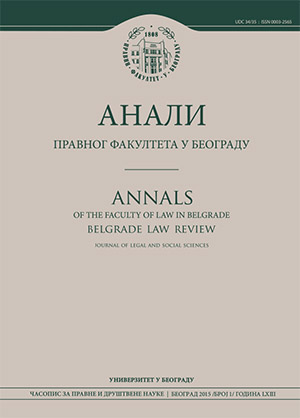ПРАВНА ПРИРОДА АФАТОМИЈЕ
LEGAL NATURE OF AFFATOMIA
Author(s): Miloš StankovićSubject(s): History of Law, Family and social welfare
Published by: Правни факултет Универзитета у Београду
Keywords: Affatomia; Mancipatio familiae last will; Germanic law; Inheritance agreement;
Summary/Abstract: In Salian and Ripuarian Code affatomia represented a bilateral legal transaction that was aimed at changing of the scoped of heirs determined by the customs, at least insofar being applied in the absence of biological descendants only. However, almost all further similarities in the field cease at this point. The form for using affatomia with Ripuarian Franks was much simpler than the one with the Salian Franks. Unlike the Salian Franks, affatomia could by all odds be used by Ripuarian Franks spouses in determining each other for a heir. Legal nature of the Salian Franks affatomia is most similar to the mancipatio familiae type of will in the Roman law (which does not mean it emerged from this law), while its form in the Ripuarian Code is much closer to testamentary adoption. As with Ripuarian Franks, affatomia seems to have definitely produced legal effects only after the death of the disposant, while its legal effects with the Salian Code performed inter vivos.
Journal: Анали Правног факултета у Београду
- Issue Year: 63/2015
- Issue No: 1
- Page Range: 169-185
- Page Count: 17
- Language: Serbian

